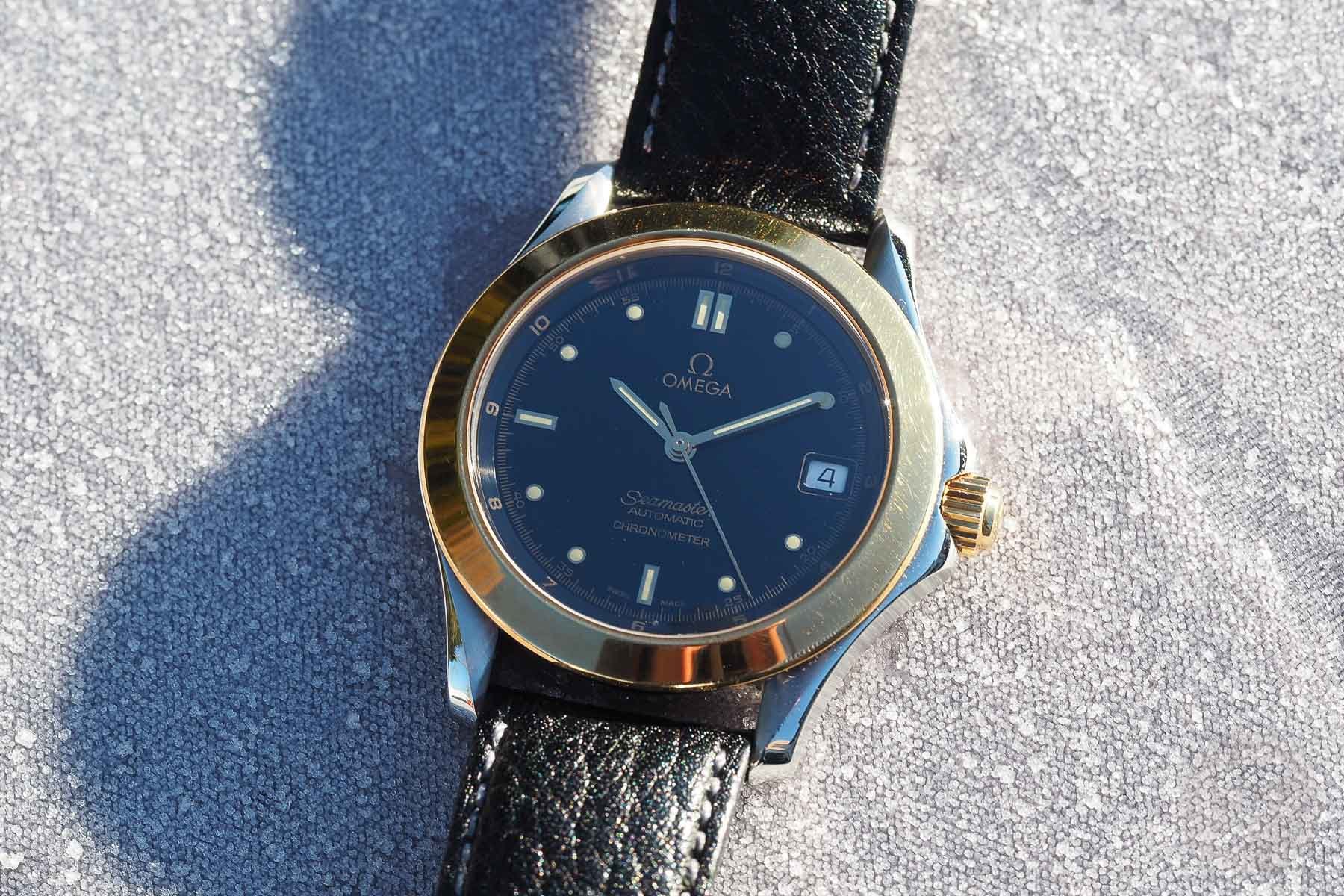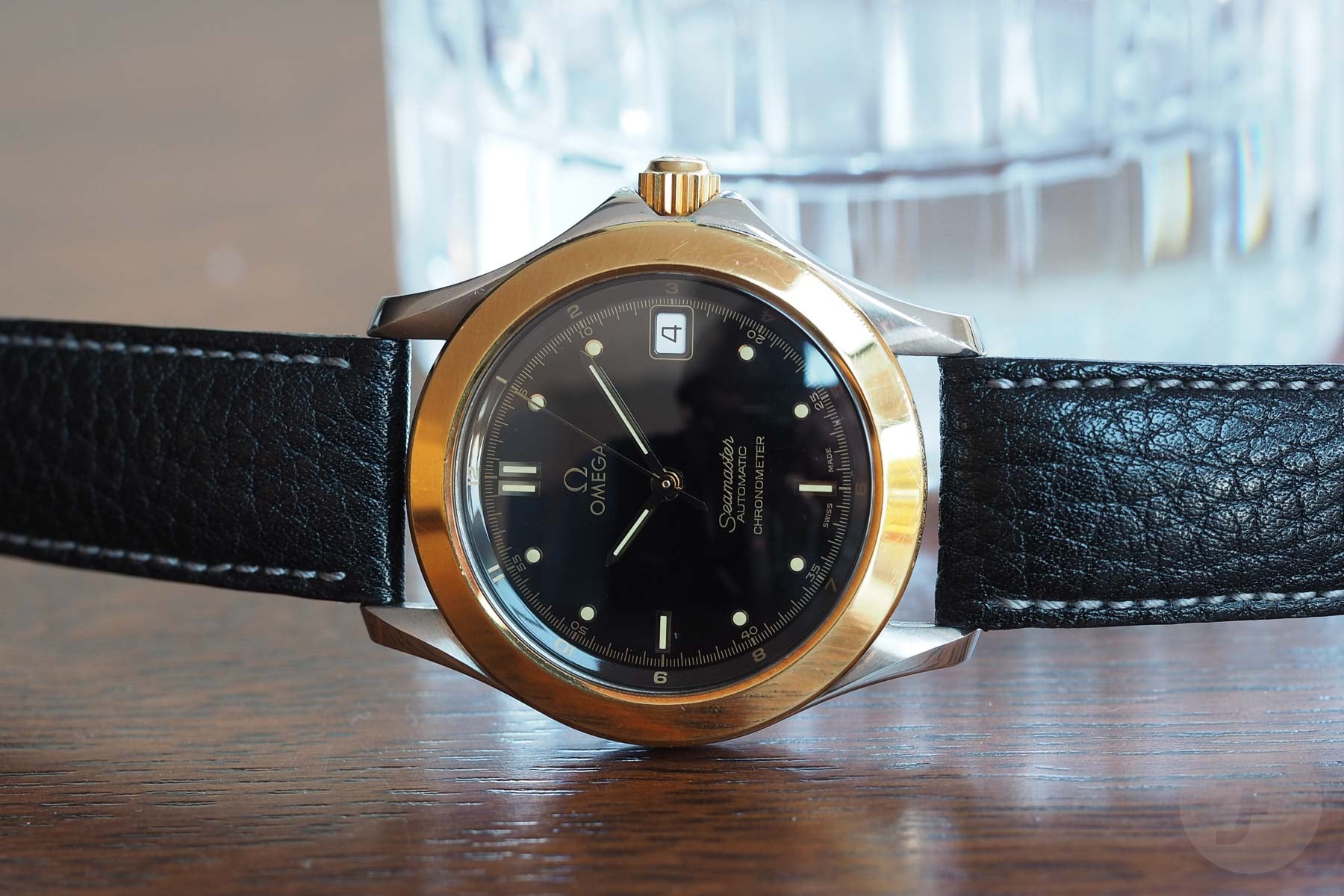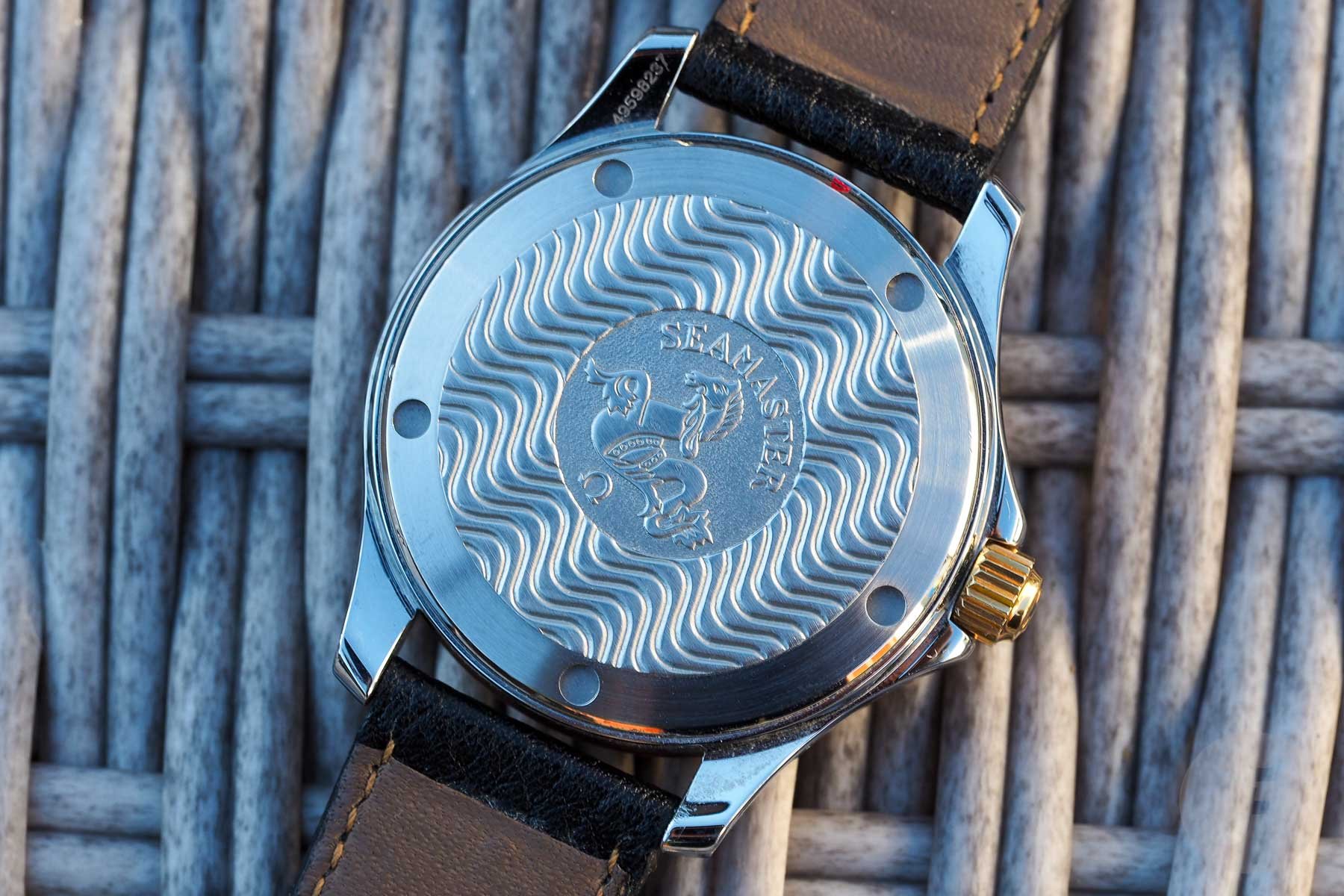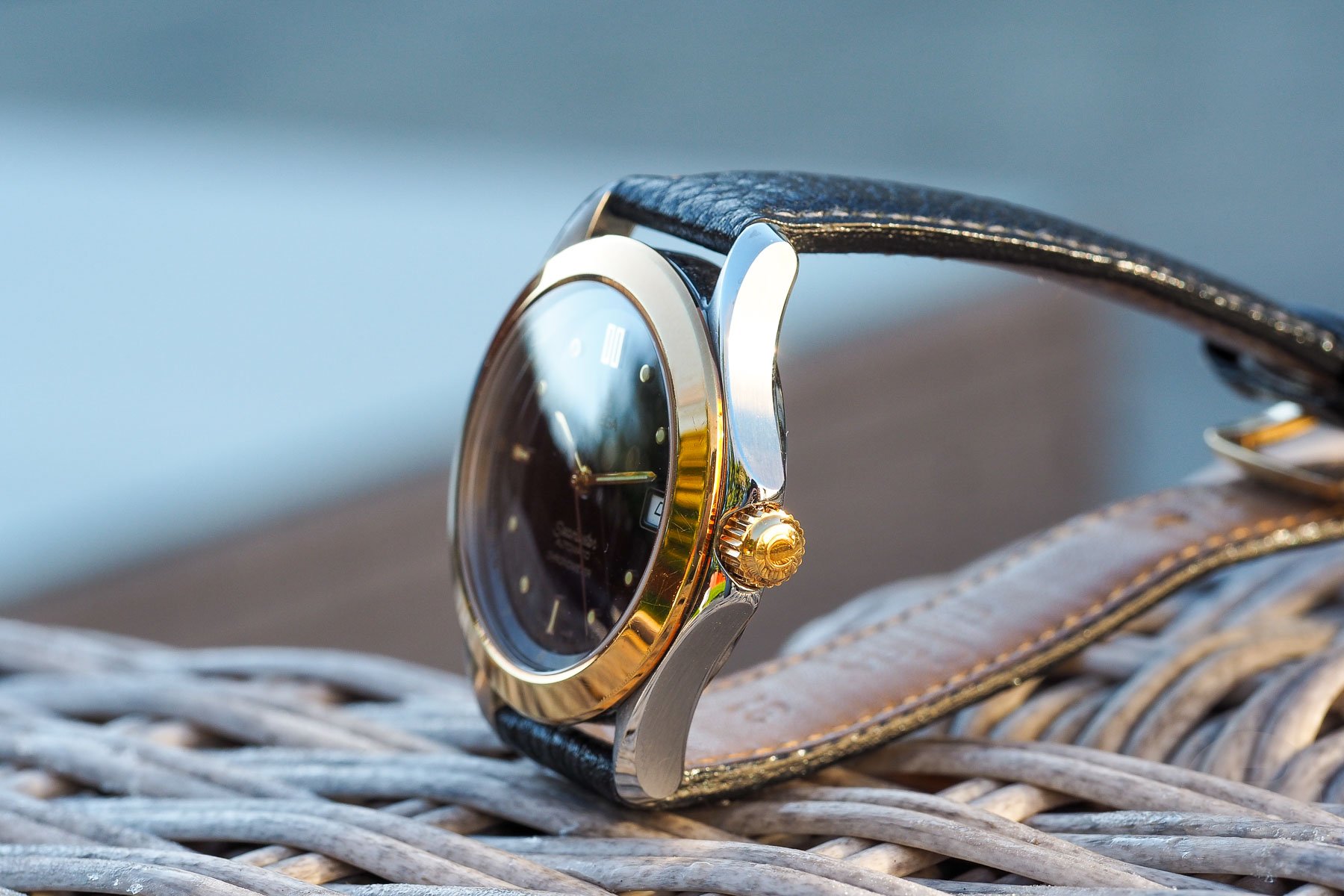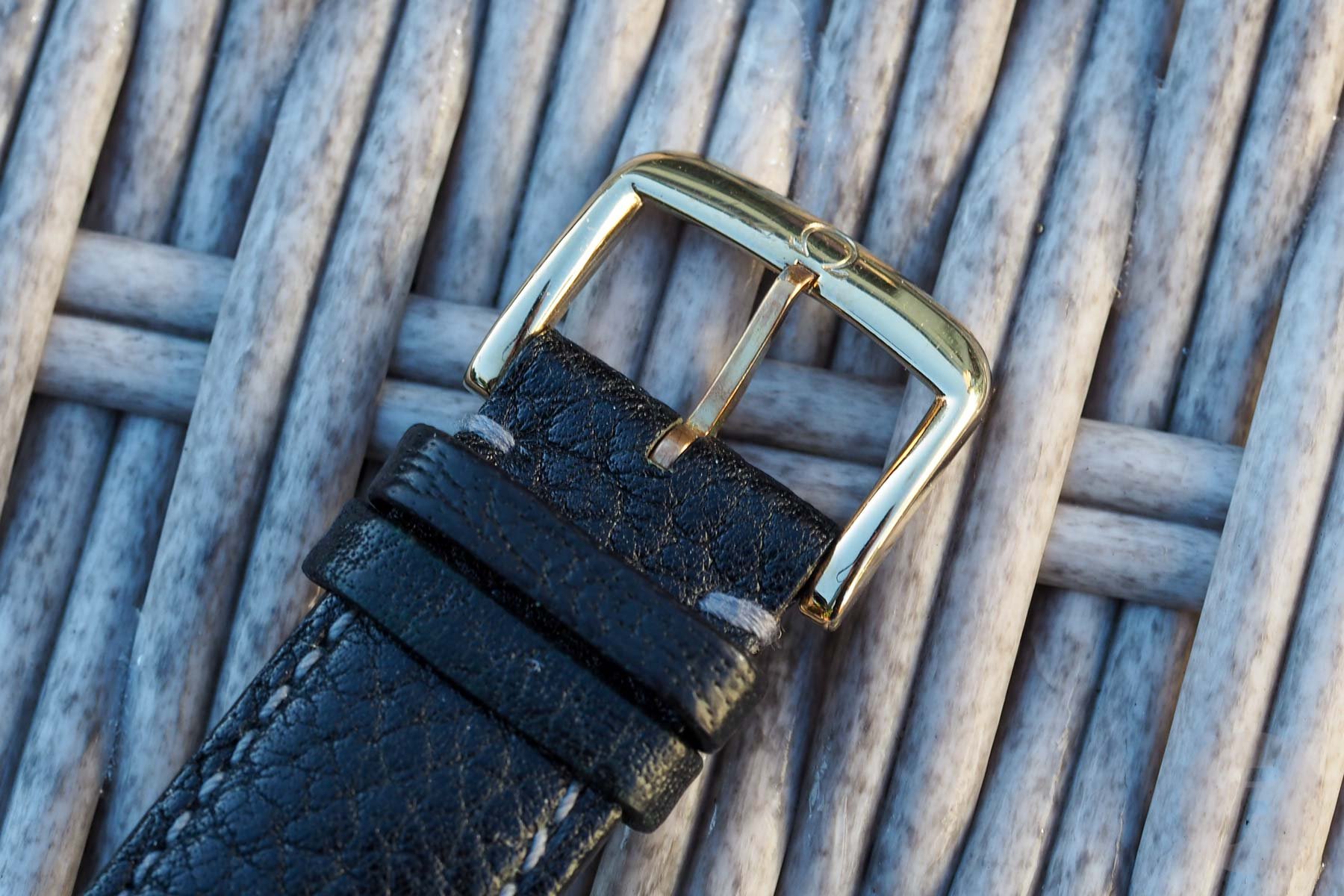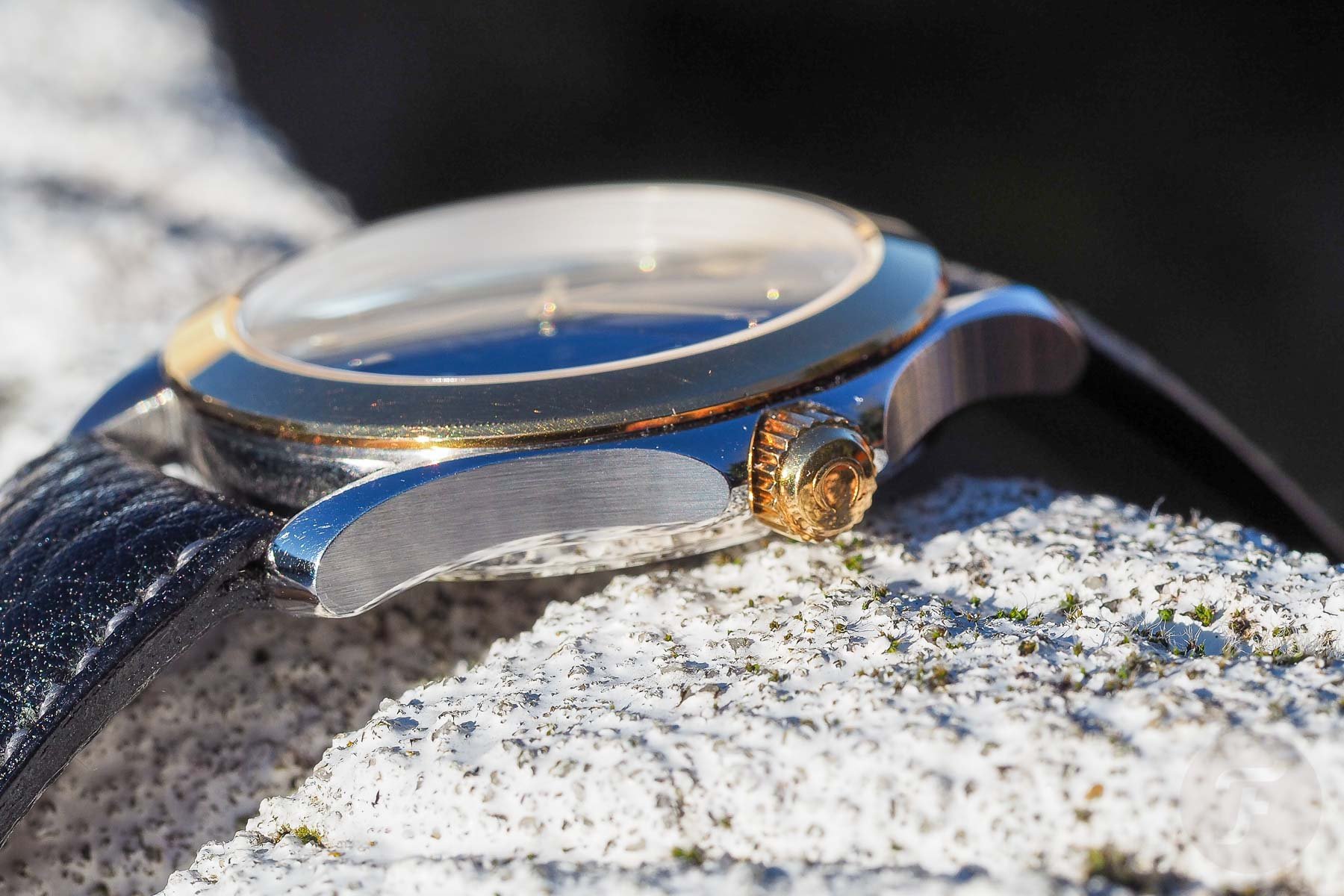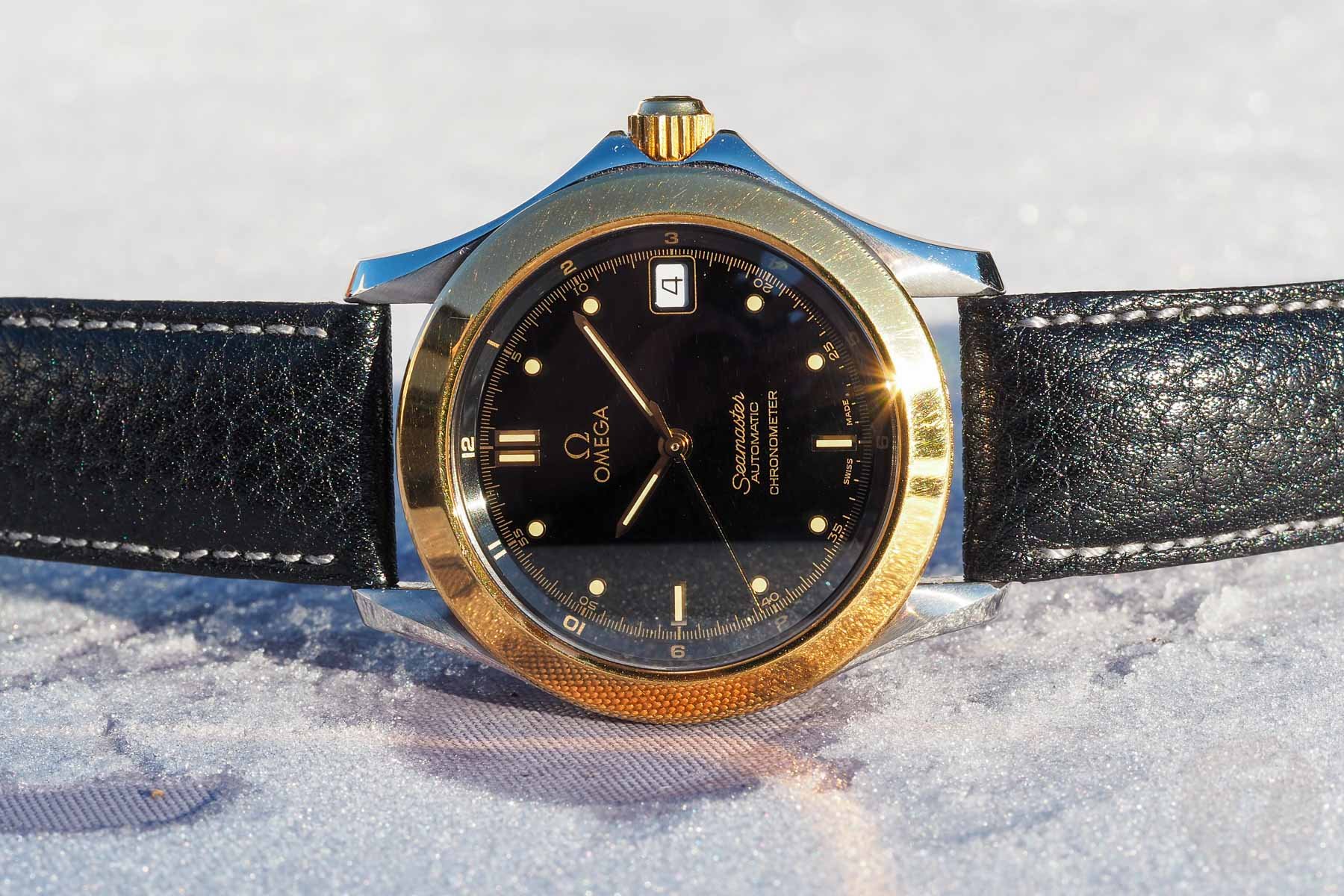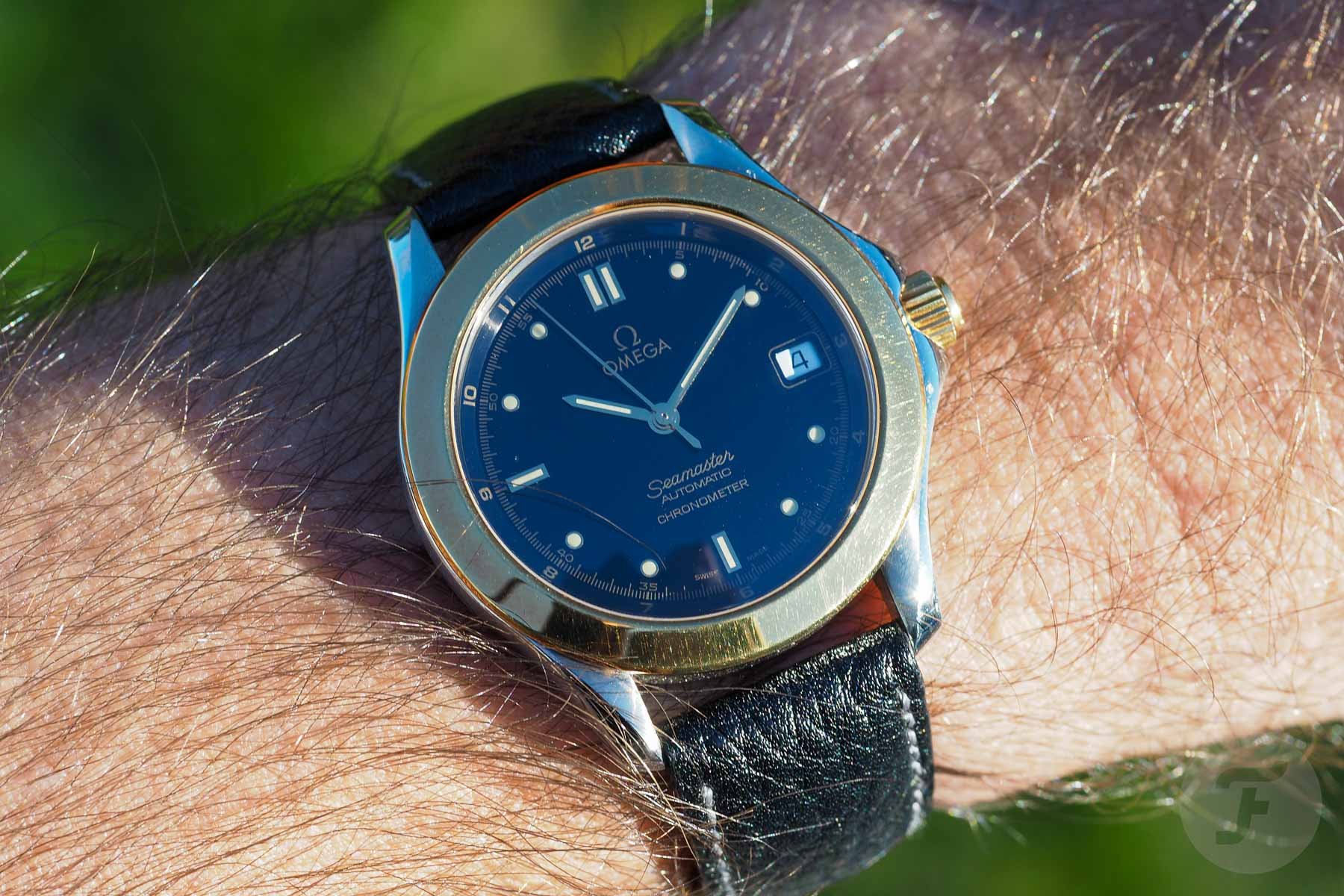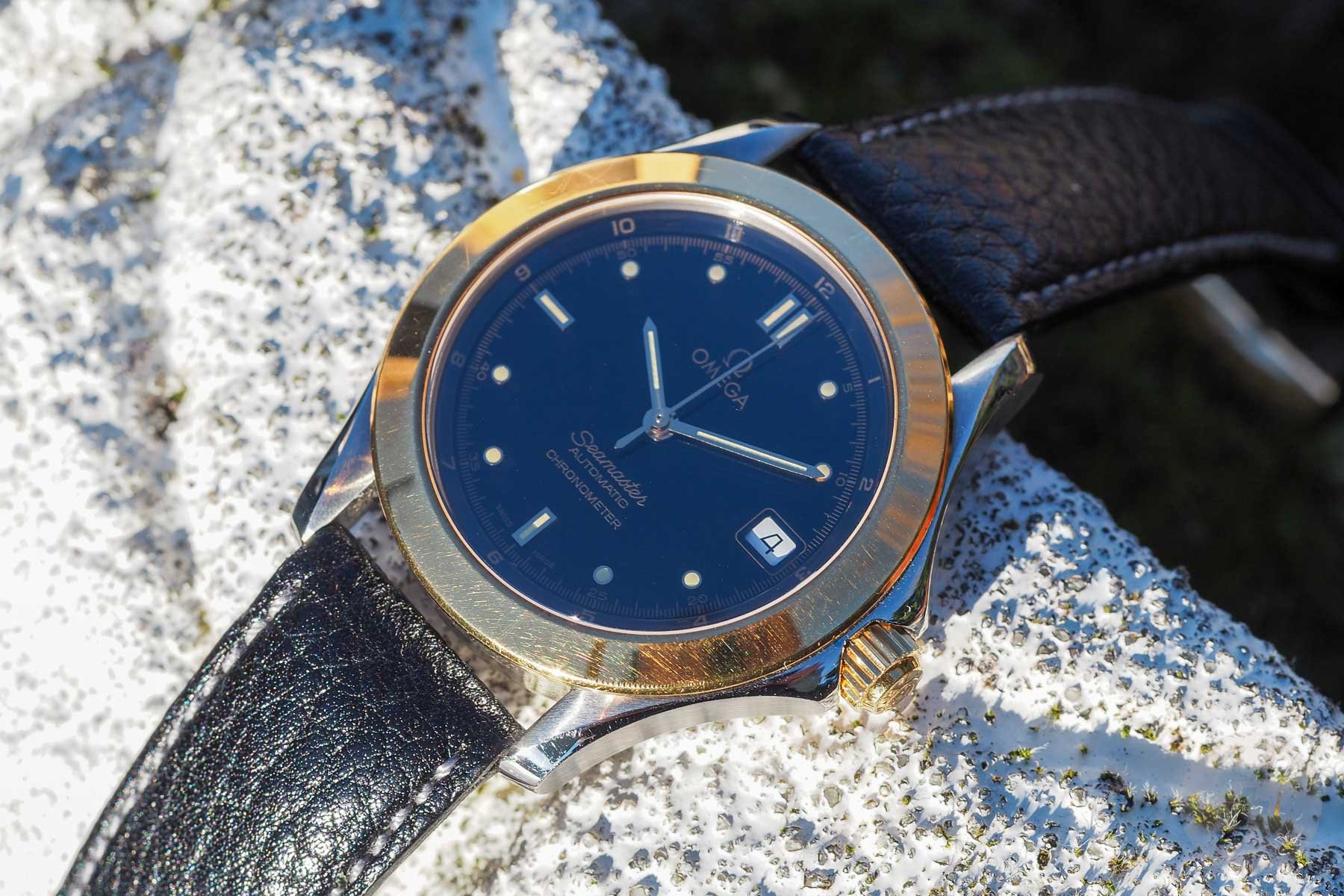Exploring Evergreens: The Omega Seamaster 120 Ref. 168.1501
In this installment of Exploring Evergreens, I’ll take a look at the Omega Seamaster 120 ref. 168.1501. This was a mainstream model in Omega’s catalog for nearly a decade during the 1990s. Today, however, it has been all but forgotten. It’s a clean design that has stood the test of time, and it ultimately paved the way for the Aqua Terra that followed.
The ’90s were quite an interesting time in the watch market. They were an odd transition period when buyers were finally starting to move away from the slim, jewelry-like quartz watches that had dominated the scene for the previous 15 years. The move was slow, though, as most luxury brands like Omega, Jaeger-LeCoultre, and others typically offered watches in mechanical and quartz options. Today’s Omega Seamaster 120 hails from that period, and, thankfully, I opted for an automatic. There’s nothing wrong with quartz, but my choice still feels like the more enduring one.
The Omega Seamaster 120 ref. 168.1501
The year was 1994, and it was summertime. For a South Floridian, it meant that the weather was the same as the rest of the year but without school. I had just graduated from high school, and we took a one-week family cruise down to the Caribbean. I’ve mentioned it before in other articles, but when we went on a cruise, we were not like the Northerners who jostled for positions by the pool or the beach. No, we were checking out watch shops. St. Thomas and St. Martin/Sint Maarten were our favorite hubs with their air-conditioned bastions of horology. It was on this trip that I decided to dip into the funds I had saved up after working part-time for the previous four years. The ultimate purchase was today’s watch, the Omega Seamaster 120.
I still recall the open-door entrances to A.H. Riise in St. Thomas. At that time, the store carried Vacheron, Patek, Omega, and more. I think it was because my dad had recently purchased a ’60s rose gold Seamaster that I was interested in an Omega. I remember him showing me the small symbol in the center of his acrylic crystal and how the brand kept up that tradition. His vintage watch wasn’t incredibly sporty, but it was water resistant, and it looked nice. The Seamaster 120 was the modern equivalent.
Two-tone was hot!
I mentioned that the ’90s were odd, and one of the trends that hung around from the previous decade was two-tone watches. At that time, if one couldn’t afford full gold, two-tone was seen as the next best choice. It’s funny to think that today, while bicolor watches have enjoyed a small resurgence, they’re still rather undesirable. Regardless of how the future would see the Seamaster 120, I loved the inky jet-black dial and how it played against the gold appointments. The large gold bezel and the massive gold screw-down crown felt so luxurious at the time. Yes, with a pair of khaki pleated gabardine slacks and a black dress shirt, this was the definition of looking good in the ’90s!
The Seamaster 120 ref. 168.1501 measures 36mm wide by 42.65mm long. It’s nearly 10mm thick, including a highly reflective sapphire crystal, and has an 18mm lug spacing. Aside from that last attribute, this watch was right on target with its primary competition, the Rolex Datejust. As the name suggests, it was also water resistant down to 120 meters. As a nod to this spec, I’ve always enjoyed the case back on this watch, which features textured waves and the mighty hippocampus in the center.
So many variants
A quick look online at the Seamaster 120 from this period will reveal a mystifying array of models. Omega made everything under the sun with this model in terms of dial colors and offered it in full steel, full gold, and two-tone. Quartz was available, and some models received a chronometer designation, while others did not. There are even skeleton-handed versions that mimicked a more famous watch from the period, the Seamaster Professional 300M ref. 2541.80.00 used by Pierce Brosnan in GoldenEye. Finally, Omega was happy to sell the Seamaster 120 on a multi-row bracelet or a strap with a pin buckle.
As you can see, I opted for a version with the chronometer-rated caliber 1109. This was a decorated automatic ETA 2892-A2 with a quick-set date function. It’s a well-known and reliable movement, and even if it’s not in-house, it is within the Swatch Group family. As a teenager, I was definitely on a budget, and that led to a version on a leather strap. Omega used a supple black calfskin that still feels great. The brand paired it with an 18K gold buckle. Much like the crown, this gold detail felt rich when I purchased the watch.
Other sweet details about the Seamaster 120
To me, the case on my Seamaster 120 always looked elegantly tough, and it’s even better now that the gold has aged. I don’t always like a Seamaster more than its Rolex equivalent, but I honestly think that this was a much cleaner and nicer-looking watch than the Datejust. The case has traditional lyre-shaped lugs, and its various edges are finished well. The flanks are brushed and help break up a large, sweeping surface. I particularly adore the lovely crown guards and how they organically ensconce the crown. The dial is attractive and doesn’t look like it’s hitting its 30th birthday. Finally, the tritium was useful in the dark, and it’s nice to view a relatively modern watch from before the days of exaggerated indices.
A once-popular watch that has all but disappeared
Indeed, plenty of photographs exist of Seamaster 120 models from this period. However, there are surprisingly few for sale. The ones that are for sale are often in terrible condition. For certain, the overall quality at Omega has improved drastically over the past three decades. Watches from the ’90s now seem like they’re from a malaise-ridden period when materials or quality control weren’t as advanced, and it’s evident with plenty of lume rot and signs of moisture. Frankly, it probably led to many of these watches being thrown into the scrap pile. It’s a shame because, taken at face value, these are lovely watches.
Wears well and still looks sharp
As you can probably tell, I’ve barely worn my Seamaster 120. After buying it, I went off to college, and it certainly wasn’t an appropriate watch for frat parties and other typical behavior. When I did choose to wear it, it was primarily for more formal occasions. Then, as two-tone watches fell out of fashion, I admittedly forgot about it. Now, though, I’m wearing it more than ever before. It fits perfectly, and while I think a 20mm lug spacing would give it more presence, I can’t argue that it’s a well-balanced design on the wrist.
Final remarks
The Omega Seamaster 120 from the ’90s will never become some sort of icon. Nevertheless, it’s an important piece within an enduring line of watches. This is the everyday Seamaster that doesn’t proclaim to be good at any one task, yet it can handle anything within reason. It also set the table for the Aqua Terra Seamaster line that still exists today. I like those watches, but I miss the quiet confidence from these earlier pieces. Today, these watches cost between €1,500 and €2,500 depending on condition and if it’s a private or dealer sale. If it’s a nice one, I think that’s very good value indeed.

